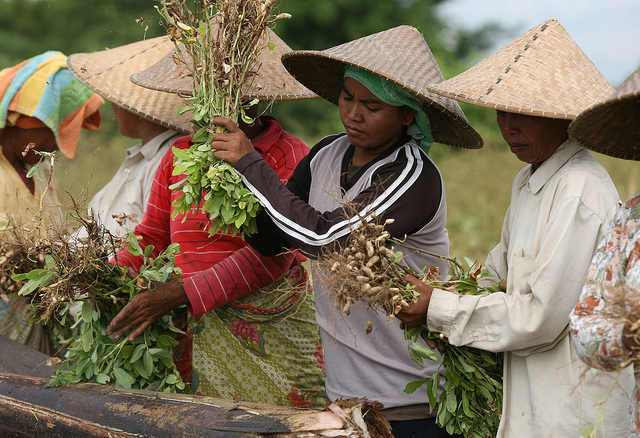Deadline: 28-Aug-2020
The Global Programme Food Security (GPFS) of the Swiss Agency for Development and Cooperation (SDC) has announced an open call for proposals to identify a programme by an organization, a consortium or an alliance of institutions willing to build on and systematize existing innovative initiatives with multi-stakeholder approaches to strengthen nutrition in secondary cities.
The overall goal of the programme SDC/GPFS is looking for is to contribute to improved nutrition among consumers, including the most vulnerable ones, living in the urban, peri-urban and rural areas of a defined number of African and Asian secondary cities. It aims to do so by testing and scaling innovative approaches in order to simultaneously address food governance and the demand and supply side for enhancing access to local, safe, nutritious, diverse and affordable food and changing behaviors of consumers and producers.
The proposed theory of change is based on the need of simultaneous action on the demand for and the supply of healthy, diverse and agro-ecologically produced local food to improve diets: IF urban governments incentivize the consumption of healthy, diverse and agro-ecologically produced local food products, IF local food producers can rely on functioning supply chains and markets to sell their products to urban consumers, and IF urban, peri-urban and rural consumers and producers are aware of the benefits of a healthy and sustainably produced diet, can afford it, and desire them, THEN demand for a healthy and sustainably produced diet increases and nutrition improves in secondary cities in Africa and Asia.
- The proposed overall goal and theory of change shall serve as a strategic framing reference to be refined by the participants of the call for proposals. They should also develop outcomes alongside the following strategic lines:
- The consumption of healthy, diverse and agro-ecologically produced local food in secondary cities is incentivized by urban governments in order to improve local food systems;
- The access to affordable, healthy, diverse and agro-ecologically produced food is enhanced through functioning supply chains and markets linking local producers with urban consumers in secondary cities;
- Urban consumers’ and rural producers’ demand for a healthy diet based on diverse and agroecologically produced local food is created and increased through urban governance strategies, including better nutrition education in public institutions (through the health and education system), adjusted public procurement systems, and through social behavior change communication and social marketing campaigns from public and private providers and through various media channels;
- National and global policy and norm setting processes (e.g. within the UN, SUN, CFS, and FSS2021 follow-up processes) and city-knowledge exchange networks, are influenced by the experience and evidence gathered on how to shape urban-rural food environments for improved nutrition in secondary cities in LMICs.
- In the framework of this call, SDC may choose one single proposal for funding. SDC’s contribution for the first phase will be a maximum of CHF 2’000’000. per year.
- SDC’s contribution will cover a maximum of 50-80% of the total cost of the project during the first phase. In phase 2 and 3 of the project, SDC’s contribution will cover a maximum of 50% of the total cost of the project.
- The period foreseen to support financially a potential programme is set at 10 years to take into account the complexity and the long-term nature of the project’s development objectives. Contractually and conceptually, the programme should be divided into three successive phases. A contribution contract will be signed for each phase. The first phase of the project shall last 4 years (June 2021 – May 2025), followed by a possible second phase of 4 years (June 2025 – May 2029), and a possible shorter third phase (until May 2031).
Geographic Focus
- SDC is looking for a multi-country programme with a global focus. The geographical focus shall be on low and middle income countries in Sub-Saharan Africa and South-East Asia. It should be implemented in at least three countries. In order to develop synergies with SDC South cooperation, the programme should target at least one SDC priority country where SDC supports existing interventions on food value chains and market development. If feasible, SDC also welcomes considering a country with a more “fragile” context for implementation as it might strengthen the significance for and synergies with SDC’s humanitarian aid and other organization working in the humanitarian sector.
- Contributions to new projects and initiatives together with other donors and/or contributions to ongoing projects are eligible.
- Project or initiative implemented in multiple countries are eligible. Projects or initiatives with a focus on less than three countries are not considered.
- Synergies and complementarities to existing SDC supported programmes are encouraged. For the later, applicants are invited to build and hook on already existing value chain projects.
- Multi-stakeholder approaches, including public-private partnerships, are highly welcome.
- In order to maximize local ownership and sustainability, the involvement of local stakeholder groups, under the lead of municipal authorities, producer or consumer organizations, social entrepreneurs or other local stakeholders, in priority setting and implementation throughout the programme is highly encouraged. Small grants, incl. financial co-funding, might be considered to leverage joint local initiatives based on participatory multi-stakeholder appraisals of the local context and action plans.
- Exclusive research projects will not be considered.
Eligibility Criteria
- The call for proposal welcomes applications from single organizations, organizations with subcontractors, consortia or alliances of different stakeholder groups. SDC/GPFS is looking for partners with proven experiences and competences in the mentioned fields, demonstrated capacity to develop and implement projects of similar volume and complexity and a good anchoring in and context knowledge on the focus countries. In case of a consortium, the composition of the applicants should ensure complementarity, coherence and competence in all related field.
For more information, visit https://www.eda.admin.ch/call-for-proposals
